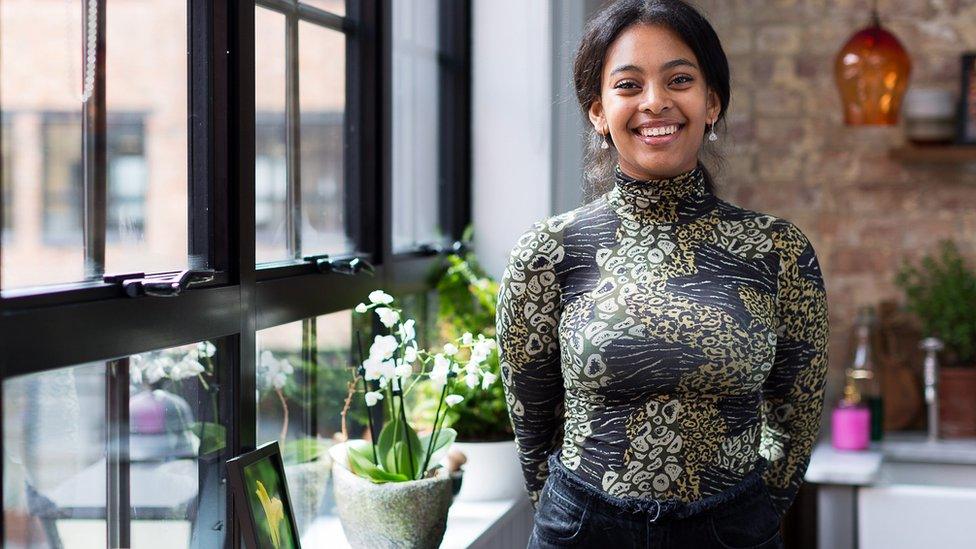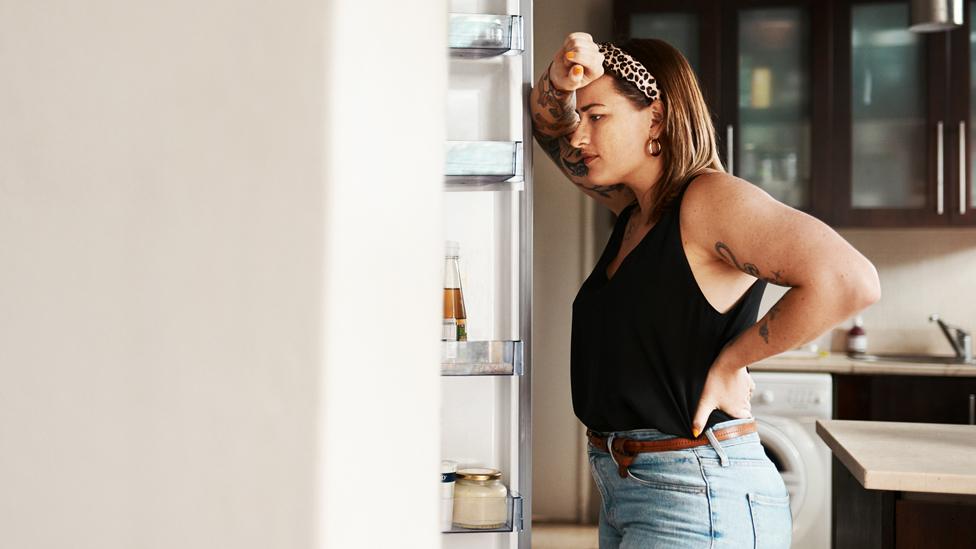Coronavirus: Snacking and family meals increase in lockdown
- Published
- comments

Christina Adane's campaign over free school meals was backed by Marcus Rashford
Changes in young people's eating habits, tracked during the lockdown in England, show both increases in snacking and families eating together.
Researchers found 60% of young people thought more shared family meal times were positive for health and wellbeing.
Young people in the study said they wanted to keep having meals together.
The research, from the Guy's and St Thomas's Charity and the Bite Back 2030 healthy eating charity, studied over 1,000 14-19 year olds.
The youth co-chair of Bite Back 2030 is Christina Adane, the 16-year-old Londoner who set up the petition for free school meals over the summer holidays, which footballer Marcus Rashford supported.
"I don't want us to be the victims of endless fast food advertisement and celebrities endorsing stuff that everyone knows is bad for us," said Ms Adane.
"I want to be part of a world where our health is the priority of the food industry."
The study of lockdown eating found contrasting trends for more unhealthy snacks, such as "grazing" on crisps and chocolate, but also more shared meals as families spent more time at home together.
It also found a widening social divide in healthy and unhealthy eating.
The report describes snacking as the "biggest negative consequence" in eating habits during the pandemic, with a 40% increase in snacks.

SOCIAL DISTANCING: What are the rules now?
SOCIAL LIFE: When will pubs, bars and restaurants reopen?
TESTING: Who can get a test and how?
LOOK-UP TOOL: How many cases in your area?

Young people in poorer families were "more likely to snack, less likely to eat fresh fruit and vegetables" than their wealthier counterparts.
"Some days I don't eat a lot at all as I'm not hungry, but others I snack more on things like chocolate, which I didn't do as much before," a 16-year-old girl told researchers.
But there was also a trend for more home-cooked food and families eating together in a way that was not usually possible.
"Food during this period allowed me to reconnect with members of my family, we've been cooking together and enjoying meals together. I'd love to continue doing it," said a 19-year-old young woman in the study.
"I think I want to continue to eat together with my family, really make an effort of that, as we didn't normally do that, and it's nice to sit together and eat," an 18-year-old told researchers.
This rise in shared meal times during the lockdown was greater among better-off families - although there was also an increase among disadvantaged families too.
And most young people saw this as healthier and more sociable.
Sarah Hickey, the childhood obesity programme director at Guy's and St Thomas' Charity, said it showed the social divide in nutrition getting worse during the lockdown.
"Even before the pandemic, families' food options were strongly shaped by where they lived, and their socio-economic background," she said.
"This research shows that the inequality gap around access to nutritious food has been further widened by the Covid-19 lockdown."

THE FUTURE OF THE THEATRE INDUSTRY: Dame Judi Dench on the impact of coronavirus
TALKING HEADS: Imelda Staunton and Sarah Lancashire take on the much-loved monologues

- Published25 April 2020

- Published16 June 2020
